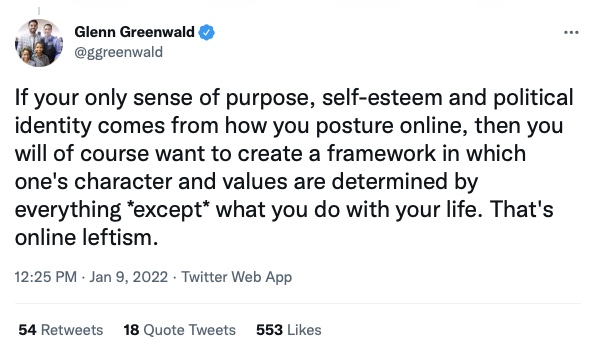The History of Modern Stupidity and the Scourge of the Polarized Hidden Sub-Tribes
Jonathan Haidt offers a retrospective and a vision in his recent article: "WHY THE PAST 10 YEARS OF AMERICAN LIFE HAVE BEEN UNIQUELY STUPID. It’s not just a phase."
But first of all, who is making most of the noise in America?
The “Hidden Tribes” study, by the pro-democracy group More in Common, surveyed 8,000 Americans in 2017 and 2018 and identified seven groups that shared beliefs and behaviors. The one furthest to the right, known as the “devoted conservatives,” comprised 6 percent of the U.S. population. The group furthest to the left, the “progressive activists,” comprised 8 percent of the population. The progressive activists were by far the most prolific group on social media: 70 percent had shared political content over the previous year. The devoted conservatives followed, at 56 percent.
These two extreme groups are similar in surprising ways. They are the whitest and richest of the seven groups, which suggests that America is being torn apart by a battle between two subsets of the elite who are not representative of the broader society. What’s more, they are the two groups that show the greatest homogeneity in their moral and political attitudes. This uniformity of opinion, the study’s authors speculate, is likely a result of thought-policing on social media: “Those who express sympathy for the views of opposing groups may experience backlash from their own cohort.” In other words, political extremists don’t just shoot darts at their enemies; they spend a lot of their ammunition targeting dissenters or nuanced thinkers on their own team. In this way, social media makes a political system based on compromise grind to a halt.
Here is a glimmer of hope because we have now identified the problem (and see here):
The story i have told is bleak, and there is little evidence to suggest that America will return to some semblance of normalcy and stability in the next five or 10 years. Which side is going to become conciliatory? What is the likelihood that Congress will enact major reforms that strengthen democratic institutions or detoxify social media?
Yet when we look away from our dysfunctional federal government, disconnect from social media, and talk with our neighbors directly, things seem more hopeful. Most Americans in the More in Common report are members of the “exhausted majority,” which is tired of the fighting and is willing to listen to the other side and compromise. Most Americans now see that social media is having a negative impact on the country, and are becoming more aware of its damaging effects on children.
Will we do anything about it?

